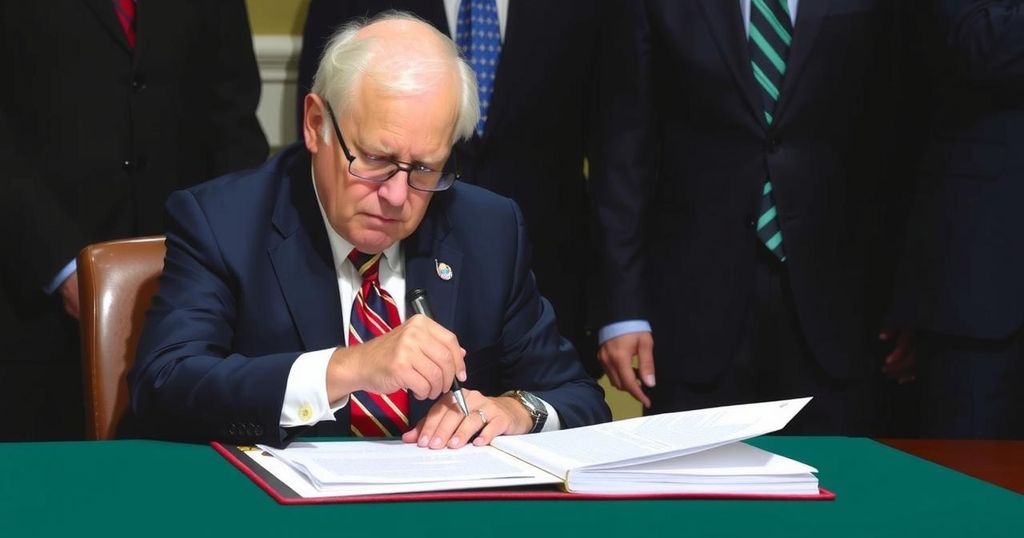President Biden has released a national security memorandum to assist the forthcoming Trump administration in establishing a strategy against the growing alliance of China, Iran, North Korea, and Russia. The classified document outlines critical recommendations focused on interagency cooperation, intelligence sharing, economic sanctions, and crisis management to effectively address challenges posed by these nations.
President Joe Biden has authorized a national security memorandum designed to assist the incoming Trump administration in addressing the strategic challenges posed by China, Iran, North Korea, and Russia. The memorandum, developed during the summer months, aims to provide a foundational strategy for the new administration to address the increasing collaborations among these four nations. This classified document contains recommendations for enhancing interagency cooperation, expediting intelligence sharing among allies, calibrating economic sanctions for greater effectiveness, and preparing for simultaneous crises involving these adversaries.
Concerns regarding the cooperation among China, Iran, North Korea, and Russia have grown, particularly after Russia’s invasion of Ukraine in 2022. The interplay of these nations has intensified, with Russia relying on Iran for drone and missile supplies, and North Korea providing artillery and military personnel to assist Russian forces. Meanwhile, China continues to support Russia strategically, while both nations engage in military cooperation, including joint Arctic patrols. This evolving dynamic presents significant challenges for U.S. foreign policy and national security strategy moving forward.
This memorandum arrives amidst heightened tensions and increased cooperation between major U.S. adversaries, reflecting a significant shift in global power dynamics. The Ukraine conflict has prompted these nations to forge closer ties, which pose a strategic threat to U.S. interests. The Biden administration is transitioning to a new administration under President-elect Donald Trump, which necessitates a framework to facilitate continuity in national security policy despite differing worldviews. This challenge is compounded by ongoing geopolitical shifts that require a coherent response.
In summary, the national security memorandum approved by President Biden represents a proactive measure to prepare the incoming Trump administration for the complexities of U.S. foreign relations with adversaries. As coordination among China, Iran, North Korea, and Russia evolves, the emphasis on interagency collaboration, effective sanctions, and crisis management will be crucial in navigating these multifaceted challenges. The unique geopolitical landscape necessitates a robust and informed approach from the next U.S. administration.
Original Source: apnews.com






